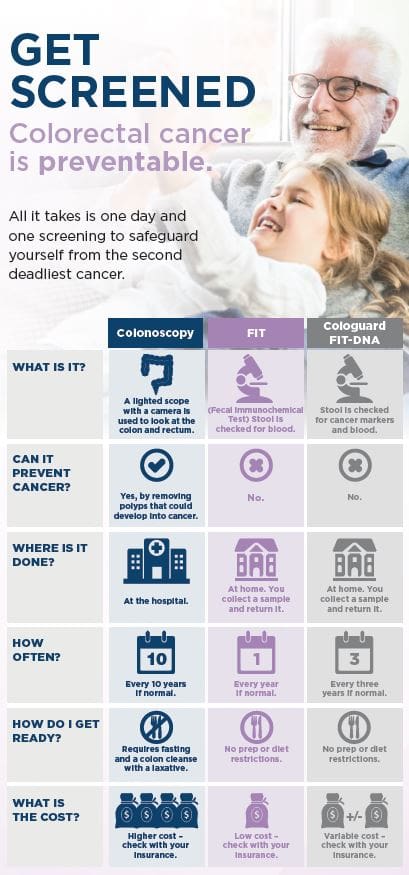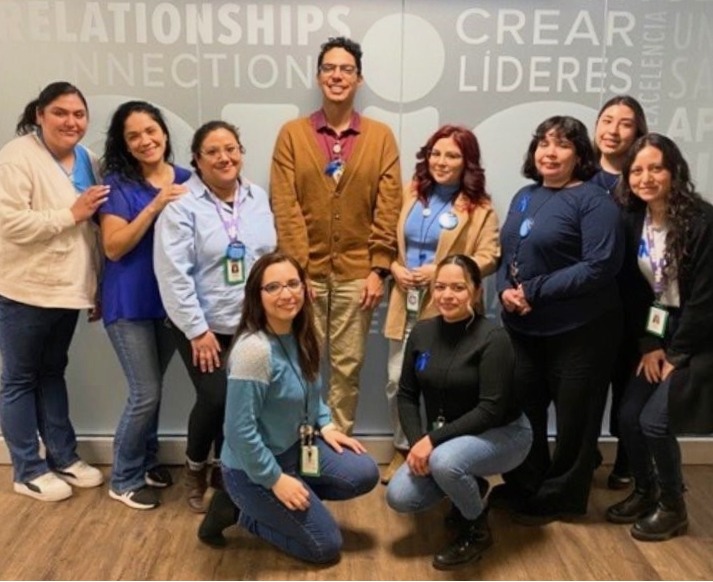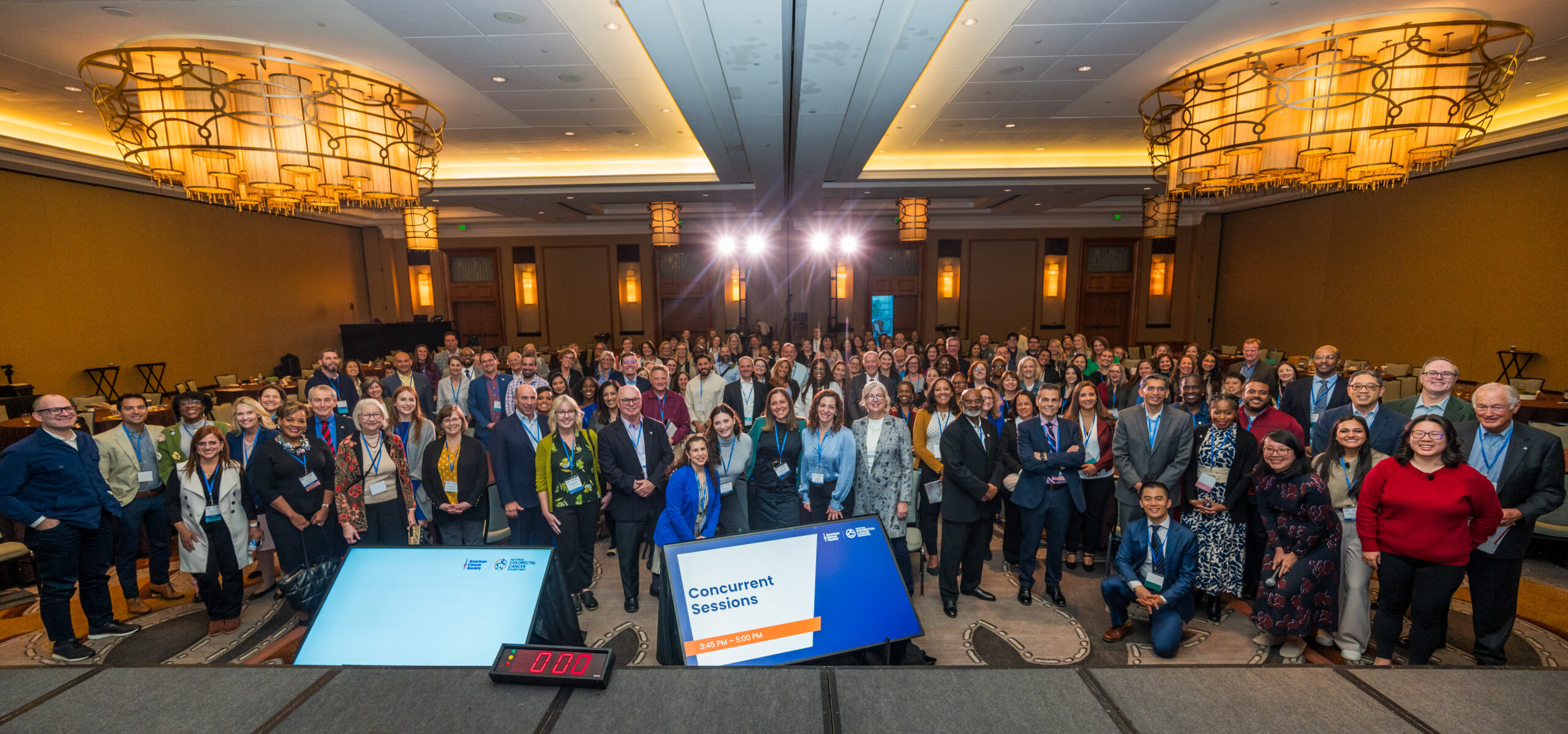Interview with Sanford Health—80% By 2018 National Achievement Award Honoree

August 29, 2019 – Author: Tessi Ross, BSN, MPA, RN, CPHQ
In February 2019 Sanford Health became an Honoree recipient of the 80% by 2018 National Achievement Awards, a program designed to recognize individuals and organizations who are dedicating their time, talent and expertise to advancing needed initiatives that support the shared goal to achieve colorectal cancer screening rates of 80% and higher.

Tessi Ross, BSN, MPA, RN, CPHQ, Senior Quality Strategist, currently provides leadership and strategy in the areas of ambulatory quality and transforming clinical practice at Sanford Health. She has over 15 years of experience in healthcare as a Registered Nurse, with over eight years in quality and case management. She analyzes quality performance data, identifies opportunities to improve outcomes and communicates findings to senior leadership, regional executives, and the Quality & Safety leadership team. Tessi also serves as the Sanford Health program director for the Centers for Medicare and Medicaid Services (CMS) Transforming Clinical Practice Initiative (TCPI) & COMPASS Practice Transformation Network (PTN). Tessi graduated from Jamestown College in 2003 with a Bachelor of Science in Nursing and the University of North Dakota in 2014 with a Master of Public Administration – Healthcare Administration degree. She is also a Certified Professional in Healthcare Quality (CPHQ) and is trained in Lean Six Sigma.
Hi, Tessi! We’re excited to feature your work on the 80% Blog. Can you tell us about yourself, and your colorectal cancer screening program at Sanford Health?
I’m Tessi Ross, BSN, MPA, RN, CPHQ – a senior quality strategist for Sanford Health. I provide leadership and strategy in the areas of ambulatory quality, population health, and transforming clinical practice throughout our organization. I also serve as the co-lead for Provider Education Workgroup for the North Dakota Colorectal Cancer Roundtable and Sanford Health is a member of the National Colorectal Cancer Roundtable.
Sanford Health signed the 80% by 2018 pledge back in 2015. Our goal was to screen more people, make the largest impact by detecting more colorectal cancer and ultimately improve the health of our population through early detection and prevention. Our outcome metric was to reach an 80% colorectal cancer screening rate among our eligible patients by the end of 2018.
Tell us a little bit about Sanford Health and the organization’s colorectal cancer screening program.
Sanford Health is one of the largest health systems in the United States with integrated delivery of health care, genomic medicine, senior care and services, global clinics, research and affordable insurance. Sanford Health includes 44 hospitals, 1,400 physicians and more than 200 Good Samaritan Society senior care locations in 26 states and nine countries. Nearly $1 billion in gifts from philanthropist Denny Sanford have transformed how Sanford Health improves the human condition.
One of the key interventions we implemented was to provide flexibility to our patients by offering multiple screening methods and delivery systems. We encourage our primary care clinics to offer colonoscopy, FIT, and FIT-DNA testing to our patients through shared decision making. Providing the take home screening options has been appealing to our unscreened patient populations that were previously hesitant to complete a colonoscopy due to personal, structural or financial barriers. We also developed a single-page teaching tool that helps patients to visually compare their options for screening.
When and why did Sanford Health decide to focus on increasing colorectal cancer screening?
Our organization’s screening rate was 68.7% in 2015, which prompted us to sign the national 80% pledge. Sanford Health’s dedication to improving the health of the populations we serve led to an internal initiative prioritizing colorectal cancer screening. We recognized that to improve, a one-size-fits-all approach would not work. Therefore, we deployed a multi-faceted approach.
What activities and systems changes did you implement, and how did you choose them?
We deployed a multi-faceted approach including the following interventions:
- Establish executive and physician leadership commitment
- Embrace organizational policies that allow all staff to practice at the top of scope
- Clinic teams work real-time registries, identifying patients outside the clinic walls overdue for screening
- Nurses can teach and place orders per protocol for cancer screening
- Providers can provide further education and clinical recommendations for the remaining unscreened population
- Provide flexibility for our patients by offering multiple screening methods
- Take home screening kits are demonstrated and strongly encouraged when the patient declines colonoscopy
- Single-page teaching tool helps patients visually compare their options
- Reduce patient structural barriers
- Promote patient financial assistance programs when affordability is a challenge
- Patient portal self-referrals allow active patients to request a screening colonoscopy from the convenience of home
- Recall letters and teaching tool are translated to 3 additional languages
- Roles within the clinic are specifically dedicated to help patients gain access to resources to improve health equity
- Optimize tools, reminders and scripting tips
- Our electronic medical record (EMR) now has built-in reminders to alert clinic staff and patients when they are due for preventative screening
- Teaching handouts built into EMR so patient has access on paper after visit summary or in the patient portal
- Partner with Employee Health to offer appropriate colorectal cancer screening with flu shots
- Implement FIT mailing pilots in each regional market
- Provider assessment and feedback initiatives
- 2018 Reward & Recognition Program
- Low-performing Provider Accountability & Coaching Program
- Colo-Bingo contest
- Promote data transparency to spread best practices and friendly competition
Many of our strategies and interventions were developed through the review of the NCCRT toolkits and webinars. We also developed some unique internal ideas to incentivize and motivate our teams to engage in this work.
What success have you seen? How did you measure that success?
We are proud to share our results – as of June 2019, twenty-nine of our primary care clinics are exceeding the 80% screening goal. As a system, we are moving closer to the 80% goal with a system wide screening rate of 78.1%, up 9.4 percentage points from 2015. This percentage reflects over 108,000 patients up-to-date with colorectal cancer screening, an increase of over 25,000 patients receiving screenings since 2015. In recognition of Sanford Health’s exemplary efforts to increase colorectal cancer screening, the organization not only received the NCCRT’s 2019 80% by 2018 National Achievement Award in the Hospital/Health System category, but we also became the inaugural recipient of the Organization of the Year for the 2018 North Dakota Colorectal Cancer Screening Achievement Awards given by the North Dakota Colorectal Cancer Roundtable. Dan Heinemann, MD, Sanford Health network medical officer, was also the recipient of the 2018 Champion of the Year by the South Dakota Comprehensive Cancer Control Program Colorectal Cancer Task Force.
What tips would you offer to others that are working to increase colorectal cancer screening in hospital systems like yours?
Get started! This is such rewarding and impactful work. Most colorectal cancers are preventable, and we have the ability to make a difference in the lives of our patients through early detection and prevention. The NCCRT has all of the resources and toolkits at your fingertips to get started. Identify a few champions in your clinic or health system and start putting together a plan using your improvement science tools. I would also recommend getting involved in your statewide or regional collaborative to learn best practices and share ideas.
Were there tools, trainings or resources that you found helpful?
Our partnership with the American Cancer Society and our statewide collaborative efforts have been essential to the improvements we have seen internally and across our states. We have been able to test interventions, then spread and scale best practices across our states through these collaborations. The NCCRT has many toolkits and webinar recordings on their online resource center to help get you started. The resources that we have found most useful are the NCCRT primary care clinical practice tools (click on “primary care” under “Setting”), the Colorectal Cancer Screening Handbook for Hospital and Health Systems, the Risk Assessment and Screening Toolkit, and the Paying for Colorectal Cancer Screening Patient Navigation Toolkit.
Do you have any final tips for our readers that are working to achieve 80% in Every Community?
Our shared efforts to reach 80% are improving screening rates across our country. However, we still have many communities and populations that are being left behind. According to the Centers for Disease Control, about 1 in 3 adults appropriate for colorectal cancer screening are still not getting screened as recommended. We have the obligation to continue having conversations with patients about their options for colorectal cancer screening and identifying the barriers in those communities to develop effective mitigating strategies. I would recommend starting to filter your data by age, gender, race, zip code, etc. to identify the disparities that exist in your clinic/health system. This will allow you to work with those communities and populations to identify focused interventions needed to improve their screening rates.
Thank you for sharing your story with us! We look forward to hearing more about your work and Sanford Health’s progress in the future.[vc_widget_sidebar sidebar_id=”sidebar-1″][vc_tweetmeme][vc_facebook]
We Highlight Successes, Leaders, Best Practices, And Tools That Are Making An Impact In The Nationwide Movement To Reach 80% Screened For Colorectal Cancer.
Do you have a suggestion for a future blog topic? We welcome you to share your suggestions by emailing [email protected].
Blog Policy
Opinions expressed in these blog posts are that of the author and do not represent policies of the National Colorectal Cancer Roundtable or the author’s institution.
Our staff moderate all comments on the 80% Blog. While we do not censor based on point of view, we will delete or edit comments that are offensive or off topic. Click here to view full version.
© 2025 American Cancer Society National Colorectal Cancer Roundtable. All rights reserved.


